6 career defining records of Steve White
Paul Weller's drummer picks his finest

Steve White
From his beginnings as the unknown new kid in The Style Council to his years as Paul Weller’s trusted drummer and most-recent project Trio Valore, Steve White is a familiar face among British musicians. Interestingly, he’s also ex-Oasis drummer Alan White’s brother.
Here, Steve White runs down his personal hit parade, revealing those tracks which have most defined his career, telling Rhythm Magazine why they mattered so much along the way.
Next page: how to follow The Jam…
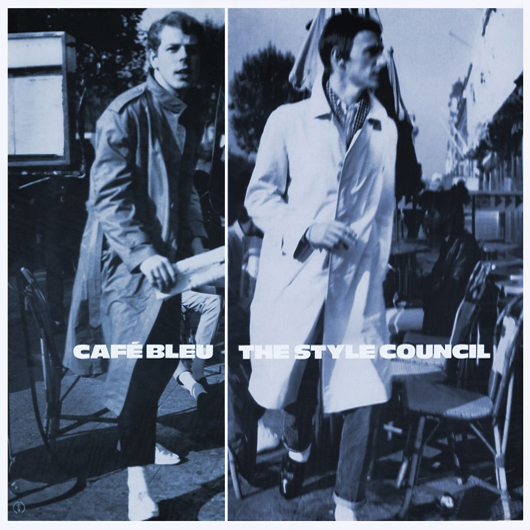
Café Bleu (1984)
After the huge success of The Jam, Paul Weller confounded everyone’s expectations but his own with The Style Council’s first full-length album, an eclectic mix of jazz, soul and pop.
Steve White says:
“For an album that was a huge commercial success and was so overtly leftfield from anything that Paul Weller had ever done before, I think it was a really inspired move to bring in musicians that were largely unaware of his past, because we weren’t intimidated.”
“I really love the sound on that record; I love the strings, I love the fact that there was an instrumental called Dropping Bombs On The Whitehouse at the height of the Cold War. Also it was the first proper record I made. I was so chuffed to get that finished vinyl.”
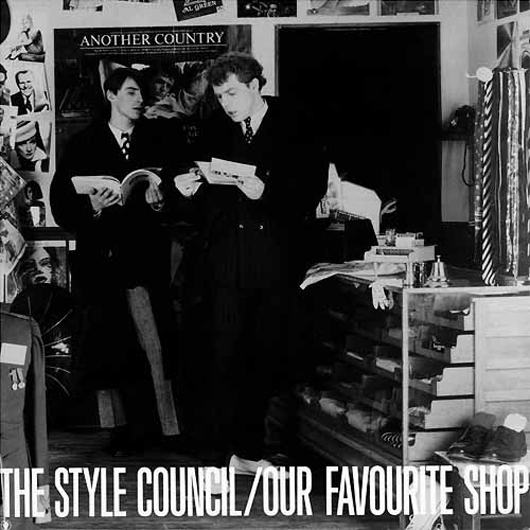
Our Favourite Shop (1985)
“That run between the two albums was fantastic,” says Steve looking back. Our Favourite Shop produced two Top 10 singles and saw the group fine-tune their cocktail of influences.
Steve White says:
“I think that was The Style Council’s finest moment in terms of lyrics and political comment. We don’t expect artists to be political now unless they are fairly marginal, but this was an album that went to No 1 in the pop charts that had lyrics commenting on the miners’ strike, about the youth trade union rights campaigns.”
“Paul played an absolute blinder in encouraging me to come out of my shell and really capitalise on all those years of playing in clubs, playing brushes, swing time, Latin patterns and bossa nova patterns.”
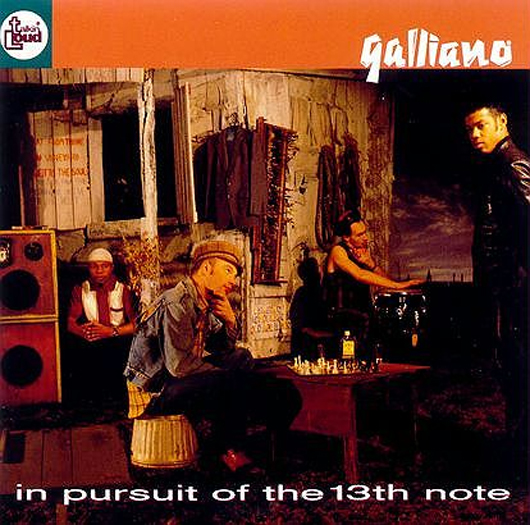
In Pursuit Of The 13th Note (1991)
“I worked on that above a garage in Clapham,” remembers Steve of the London-based acid jazzers’ debut. “It was my introduction to beats and loops and samples.” Fellow Style Council alumnus Mick Talbot played keyboards in the band, which was the first signing to Eddie Piller and Gilles Peterson’s Talkin’ Loud label.
Steve White says:
“It was the first time that I really thought that using beats and samples and listening to other people’s input could make a different approach to my drumming come out.”
“Although commercially it wasn’t a huge success, it was very pivotal in that whole acid jazz movement. Indirectly I think it was a very influential record on a whole era of British soul, rap and hip-hop that came later.”
“This was the early days of sampling and, if you listen to it now, it doesn’t jump out of the speakers, but at the time it was a very creative record.”
Buy In Pursuit Of The 13th Note here: Amazon UK | Play.com | HMV
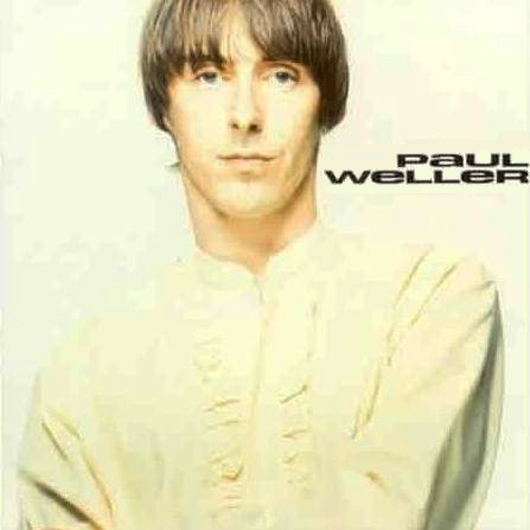
Paul Weller (1992)
After Polydor refused to release the last Style Council album, Paul Weller had a lot riding on his first solo release. With Steve back on the drums, Weller emerged completely revitalised with his self-titled hit, which reached No 8 in the UK album chart and paved the way for the mid-’90s Brit-pop movement.
Steve White says:
“It was such a fun record to make because it was largely Paul and myself. Paul was overdubbing but we were essentially face-to-face in the studio, with a drum set and a guitar, making a record.”
“That was the beginning of our long push from Paul being written off in his early 30s - we were proving everybody wrong with every single tour. The album was largely funded by Paul and his dad out of their own pocket. I remember having a meeting with a really senior figure in the British recording industry who said ‘Paul Weller is finished.’”
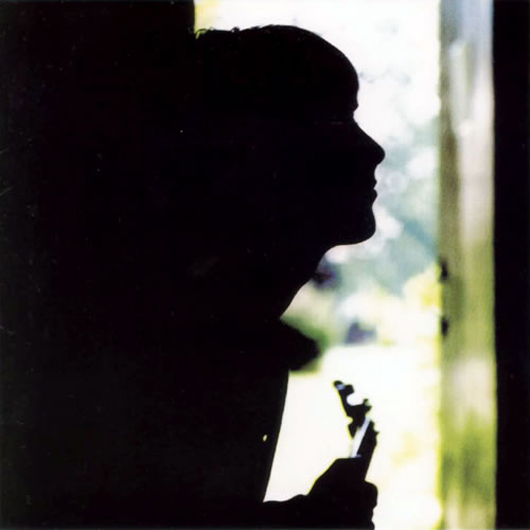
Wild Wood (1993)
After announcing his return with his eponymous solo debut, the following year Paul Weller cemented his status as the Modfather with Wild Wood, a No 2 UK chart smash featuring hit singles Wild Wood and Sunflower. ‘Has My Fire Really Gone Out’ he asks. Not likely - as the Glastonbury crowds proved…
Steve White says:
“It has such great memories for me from a creative point of view, from songs like Sunflower, Has My Fire Really Gone Out, getting to meet Steve Winwood, working with Paul McCartney – it was a fantastic time.”
“Sunflower was my little tribute to Ginger Baker, which has become a landmark in my life because the drums are so prominent. 1994 we did Glastonbury, and we went on at seven o’clock just as dusk was starting to creep across the horizon. I remember you could feel it in the crowd that everyone was listening.”
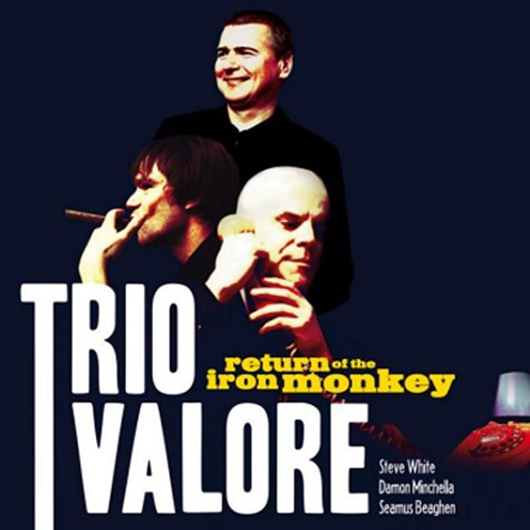
Return Of The Iron Monkey (2008)
A masterpiece of modern day funk, soul and nu-jazz with Damon Minchella on bass, Seamus Beaghen on organ and Steve on drums, the album reflects the trio’s “very unhealthy obsession with all things Italian and all things kung fu,” says Steve.
Steve White says:
“It was made over a couple of days, but it’s given me a newfound confidence in simplicity. There’s nothing on there that’s particularly fusion-esque or double pedal-tastic but it’s paying tribute to the style of playing of some of the people I’ve begun to truly appreciate, people like Earl Palmer with his fantastic backbeat groove.”
“Working in a very simple environment of bass, organ and drums you really have to think about every note. Return Of The Iron Monkey, it’s almost like a really obscure Shaolin style of kung fu - on the drums.”
Buy Return Of The Iron Monkey here: Amazon UK | Play.com | HMV